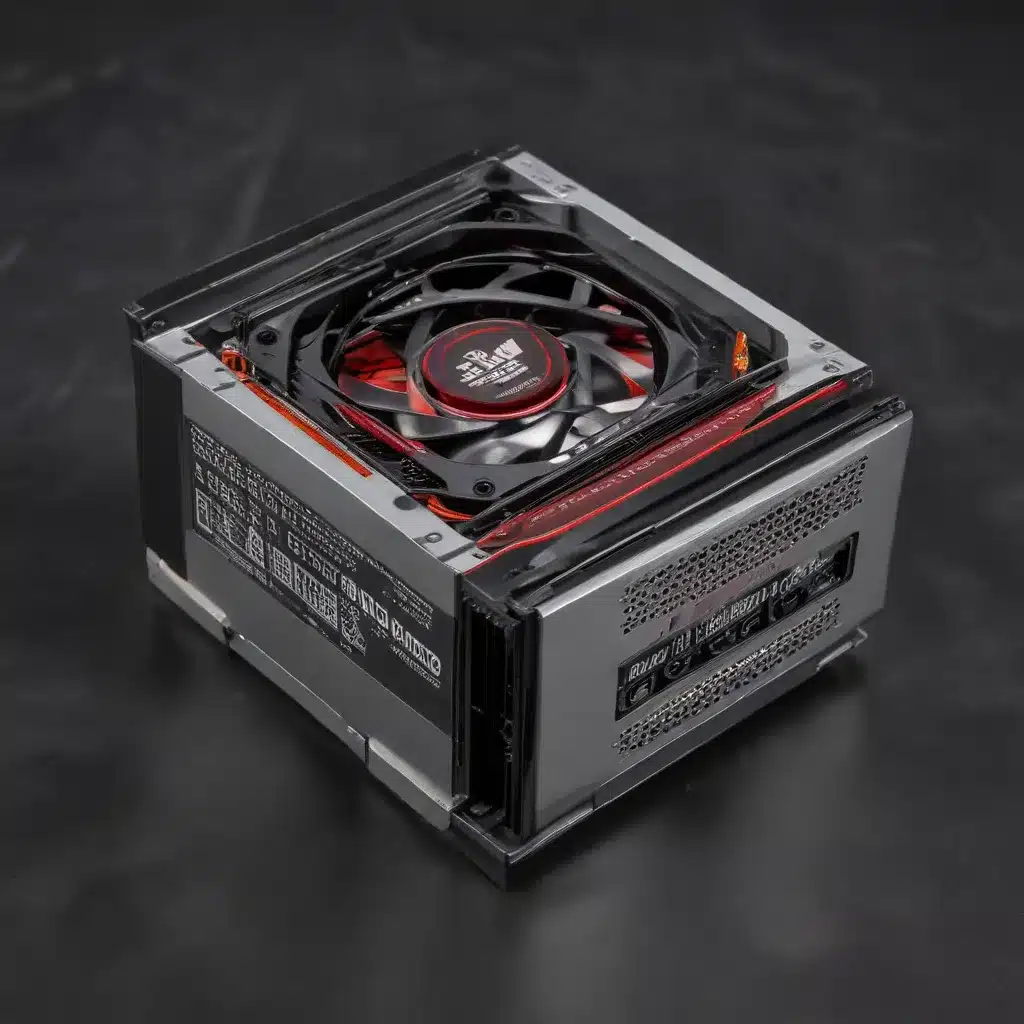
AMD Systems
The rise of compact, energy-efficient AMD systems has opened up a world of possibilities for the modern home theater PC (HTPC) enthusiast. With a focus on delivering impressive performance in a small form factor, AMD’s processors and motherboards offer an enticing solution for those looking to build a powerful yet space-saving HTPC.
AMD Processors
At the heart of any capable HTPC lies the processor, and AMD’s Ryzen lineup has emerged as a frontrunner in this realm. Ryzen CPUs boast impressive multi-core performance, making them well-suited for the diverse tasks often demanded of an HTPC, from smooth 4K video playback to efficient media encoding. Models like the Ryzen 5 5600G and Ryzen 7 5700G, featuring integrated Radeon graphics, are particularly appealing for HTPC builds, providing a balance of computing power and graphical capabilities in a single chip.
AMD Motherboards
Complementing the Ryzen processors, AMD’s motherboard offerings have evolved to cater to the specific needs of HTPC enthusiasts. Compact micro-ATX and mini-ITX form factors, such as the ASUS ROG Strix B550-I and the ASRock A520M-ITX/ac, deliver the necessary connectivity and features for a well-rounded HTPC setup, all while maintaining a small footprint.
AMD APUs
For those seeking an even more integrated solution, AMD’s line of Accelerated Processing Units (APUs) presents an intriguing option. APUs combine a capable CPU and a robust integrated graphics processor on a single chip, making them a compelling choice for HTPC builds where space is at a premium. Models like the Ryzen 5 5600G and Ryzen 7 5700G offer a compelling blend of processing power and graphical performance, allowing for a compact and efficient HTPC design.
HTPC Systems
The world of HTPC systems has evolved significantly, with a growing emphasis on maximizing performance and efficiency within a small footprint.
HTPC Components
When building a compact HTPC, the selection of components becomes paramount. Alongside the AMD processors and motherboards mentioned earlier, HTPC enthusiasts often gravitate towards compact storage solutions, such as M.2 NVMe SSDs for the operating system and fast-access media, coupled with high-capacity 2.5-inch or 3.5-inch hard drives for media storage. Low-profile CPU coolers and efficient power supplies further contribute to the compact nature of the build.
HTPC Form Factors
The choice of chassis is a crucial consideration for HTPC systems. Manufacturers like Silverstone, Fractal Design, and NZXT have introduced a wide range of mini-ITX and micro-ATX cases specifically designed for HTPC use, offering ample storage capacity, ventilation, and support for the necessary components. These compact cases often feature sleek, living room-friendly designs, blending seamlessly into the home entertainment setup.
HTPC Performance Considerations
While size is a primary concern for HTPC builds, performance remains a crucial factor. Careful component selection, including high-speed RAM, efficient cooling solutions, and optimized power management, can help ensure that the compact HTPC delivers a smooth and responsive user experience, capable of handling tasks like 4K video playback, media encoding, and even light gaming.
Compact Computer Design
Crafting a truly impressive HTPC requires a deep understanding of the principles of compact computer design, where every millimeter of space and every watt of power consumption matter.
Miniature Chassis
The foundation of a compact HTPC lies in the choice of chassis. Manufacturers have risen to the challenge, offering a wide range of mini-ITX and micro-ATX cases that pack a punch in a small footprint. These cases often feature innovative cooling solutions, strategic component placement, and thoughtful cable management to maximize airflow and minimize clutter.
Cooling Solutions
Keeping a compact HTPC cool is a delicate balance. Low-profile CPU coolers, such as the Noctua NH-L9a-AM4, and efficient case fans play a vital role in maintaining optimal temperatures within the confined space. Some manufacturers even integrate liquid cooling solutions into their HTPC cases, providing a discreet and effective means of heat dissipation.
Power Efficiency
Power consumption is a critical consideration for HTPC systems, as energy-efficient components can contribute to lower operating costs and reduced heat generation. AMD’s processors and motherboards excel in this regard, with features like AMD Precision Boost and Power Saving modes that dynamically adjust power consumption based on the system’s workload.
Maximizing Performance
While compact size is a priority for HTPC builds, it’s essential to ensure that the system delivers the performance required for a seamless home entertainment experience.
Benchmarking and Optimization
Thorough benchmarking and performance optimization are key to unlocking the full potential of a compact HTPC. Tools like CrystalDiskMark, Cinebench, and 3DMark can help assess the system’s capabilities, while fine-tuning BIOS settings, installing the latest drivers, and optimizing software can further enhance the system’s responsiveness and efficiency.
Hardware Configurations
Crafting the perfect hardware configuration for a compact HTPC requires a delicate balance of components. Pairing a Ryzen 5 5600G or Ryzen 7 5700G processor with a high-speed M.2 NVMe SSD and a compact, yet capable, graphics solution (such as a low-profile Radeon RX 6400 or NVIDIA RTX A2000) can provide an excellent foundation for a well-rounded HTPC setup.
Software Optimizations
Beyond the hardware, the software ecosystem plays a crucial role in maximizing the performance of a compact HTPC. Carefully curated media management applications, like Plex or Emby, can help streamline content organization and playback, while power management utilities and custom system tweaks can further optimize the system’s efficiency.
Whether you’re a media enthusiast, a tech-savvy Mancunian, or simply someone in search of a compact and powerful HTPC solution, the combination of AMD’s processor and motherboard offerings, coupled with a focus on efficient design and performance optimization, can help you craft a truly remarkable home entertainment system. By leveraging the latest advancements in compact computer design, you can enjoy a seamless and immersive media experience in the comfort of your own living room.












